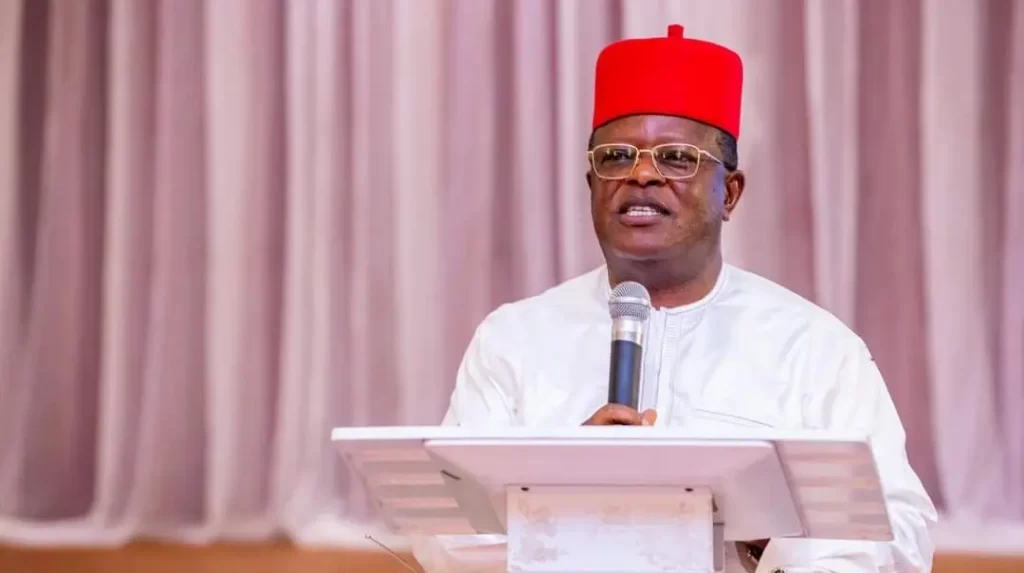The Federal Government has declared a nationwide “bridge emergency” and is set to deploy robotic machines to inspect underwater portions of bridges across Nigeria, in a decisive move to enhance infrastructure safety and reduce maintenance costs.
Minister of Works, Senator Dave Umahi, made the disclosure on Sunday during a stakeholders’ meeting on Section 2 of the Lagos-Calabar Coastal Highway project.
Umahi said the Federal Government had concluded plans to acquire high-tech robotic diving machines to replace the current method of hiring human divers for underwater assessments, which he described as “unsustainable and expensive.”
“We are going to locate a robotic kind of machine that will be able to do the diving to allow us to see everything happening under the water in all our bridges,” he stated.
The Minister revealed that the government is working with Mr. Danny Abboud, the Managing Director of HITECH Construction Company, to facilitate the procurement of the machines.
He explained that the initiative was prompted by the alarming state of many of the country’s bridges, most of which, he said, have not undergone comprehensive structural evaluations since they were built over 50 years ago.
“We want to declare, I don’t know the word to use—bridge emergency—on our bridges, to know what is happening 53 years after we constructed these bridges, not only in Lagos but nationwide,” Umahi said.
In a related development, Umahi announced a new Federal Executive Council directive prohibiting dredging activities within a 10-kilometre radius of any bridge in the country.
He cited recent findings around the Third Mainland Bridge in Lagos, where illegal dredging posed a serious structural risk.
“We saw dredging on that Third Mainland Bridge, and Julius Berger had warned that, should this dredging continue, that bridge would collapse,” he warned.
Umahi explained that most bridge foundations in Lagos depend on sand-based “skin friction” systems.
He noted that removing surrounding sand through dredging can destabilize the piles, potentially leading to catastrophic structural failures.
“All the piles in Lagos are being held by skin friction… If you remove the sand, the piles will start dangling, and it is very dangerous,” he cautioned.
To enforce the new safety measures, Umahi called for intensified collaboration with the Nigerian Navy to monitor and halt illegal dredging and sand-filling activities around the country’s waterways.
The Minister also revealed that President Bola Ahmed Tinubu would begin commissioning completed infrastructure projects from May 1, 2025.
He assured Nigerians that both new and inherited projects are receiving adequate attention under the current administration.
“I want Nigerians to have hope in the Renewed Hope administration as we are building for the future,” Umahi said.
The Lagos-Calabar Coastal Highway, a flagship project of the Tinubu administration, is expected to open new corridors for economic growth and ease transportation along Nigeria’s southern coast.
With the declaration of a bridge emergency and the introduction of robotic inspections, the Federal Government is signaling a renewed commitment to infrastructure safety and technological innovation.
Do you want to share a story with us? Do you want to advertise with us? Do you need publicity for a product, service, or event? Contact us on WhatsApp +2348183319097 Email: platformtimes@gmail.com
We are committed to impactful investigative journalism for human interest and social justice. Your donation will help us tell more stories. Kindly donate any amount HERE




